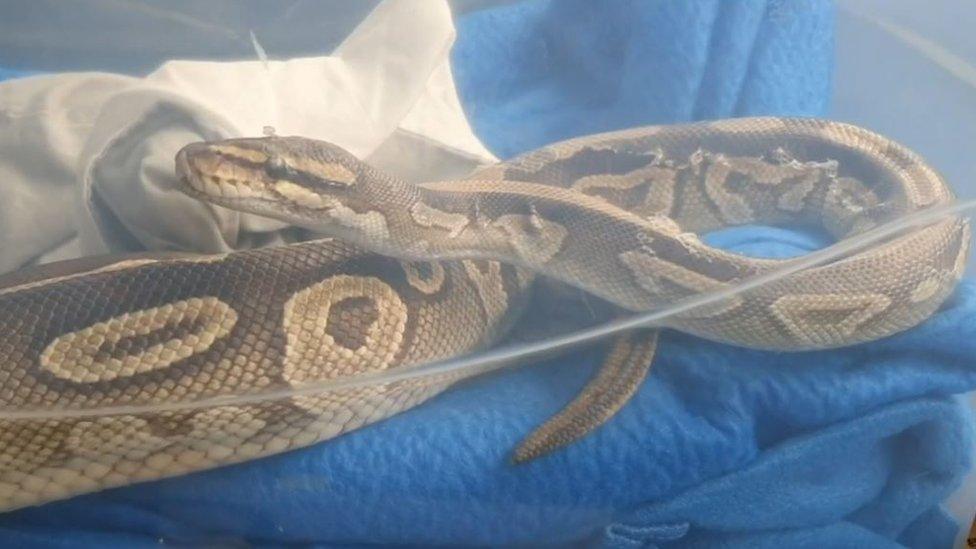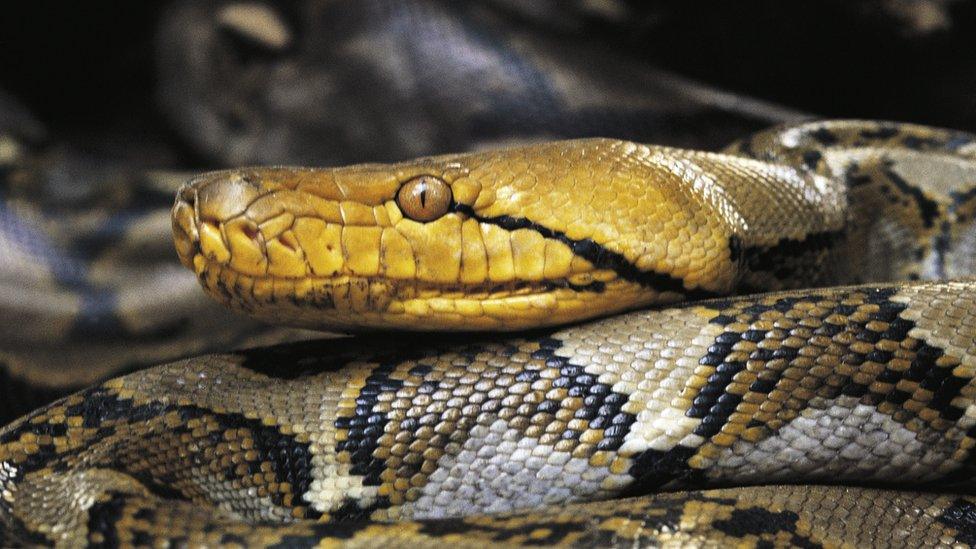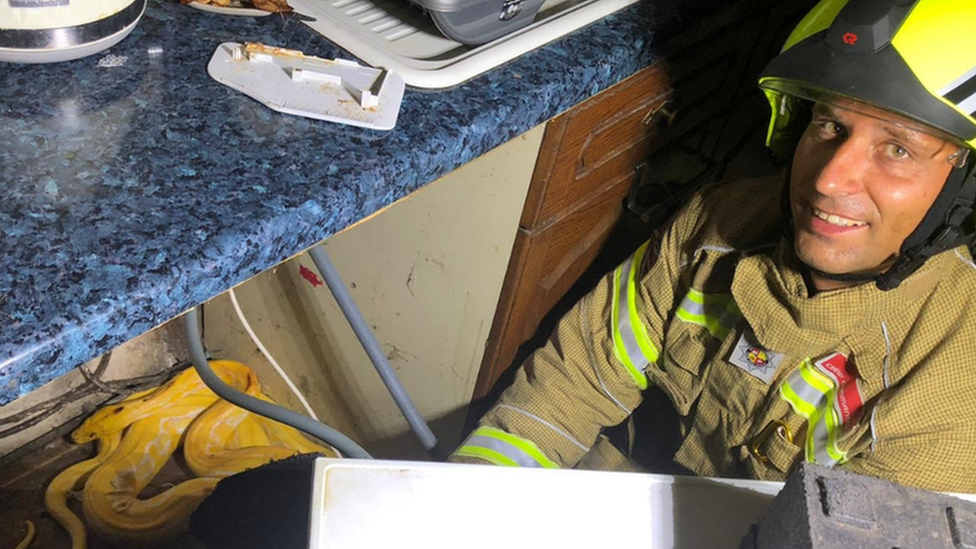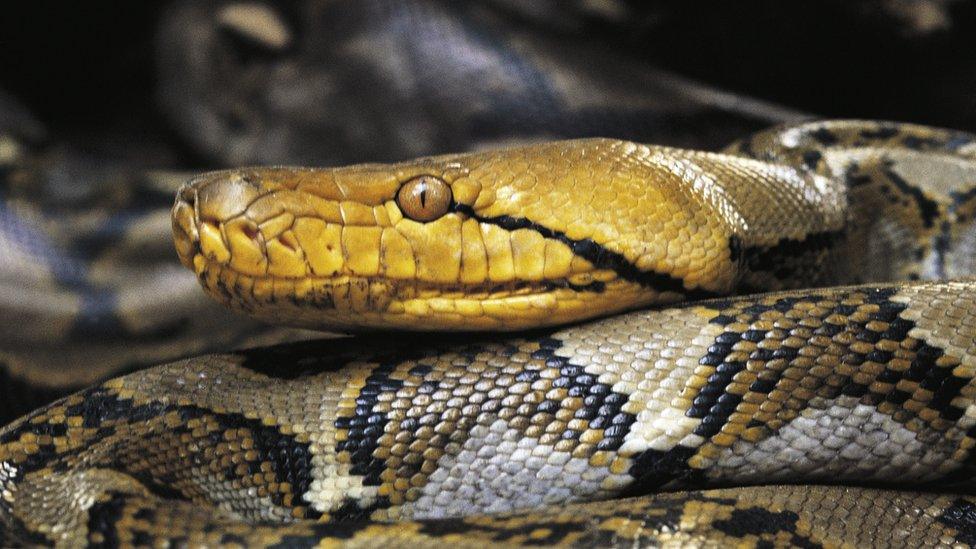Stray 5ft python found at Islington house round boiler
- Published

Met Police officers made sure the reptile was safely contained after it was discovered in the Islington home
A stray 5ft long royal python was discovered by a "startled" homeowner coiled around a boiler at a north London property.
The 1.5m brown and gold snake was confined by police officers after being alerted to the find in Islington.
The force later tweeted: "Is anyone missing a large snake? We have one at Islington Police Station."
It later said the reptile had been released "without charge" and collected by the RSPCA.
The charity confirmed it is caring for the snake at its Putney Animal Hospital.
Allow X content?
This article contains content provided by X. We ask for your permission before anything is loaded, as they may be using cookies and other technologies. You may want to read X’s cookie policy, external and privacy policy, external before accepting. To view this content choose ‘accept and continue’.
RSPCA animal collection officer Lisa Miller, said: "We're not sure who owns the Royal Python but he is in good condition so could have escaped from his home, and gravitated towards the cosy boiler cupboard to keep warm."
She said the animals can gravitate towards heat sources if they find themselves outside the safety of their heated reptile tanks, known as vivariums.
Ms Miller added: "He is shedding a little bit of skin."
Reticulated pythons are the longest snakes in the world, according to the RSPCA, and can grow up to nine metres in length in the wild.
They are not venomous but kill their prey by squeezing them and suffocating them.
They mainly eat mammals and birds, but can eat animals as large as pigs or deer.
- Published4 July 2019

- Published26 July 2019

- Published1 July 2019
